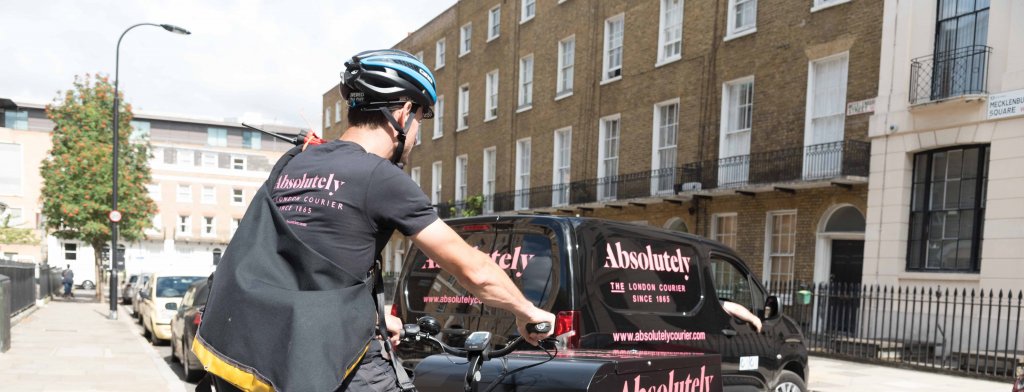
The last-mile delivery challenge concerns the final leg of the journey of goods from a transportation hub into the hands of the customer. The term was originally adopted from the telecommunications industry which to this day still faces some difficulties in connecting individual homes to the main telecoms network.
This article looks at the challenges for the courier and overall logistics industry presented by the last mile of the fulfilment process, and how they are evolving against the backdrop of the increasingly demanding consumer, UK Government, and London regulatory pressure combined with the industry’s need to meet clients’ increasingly urgent expectations around climate change and sustainability.
Consumer Attitudes
The sustainability of fashion has become a hot topic in recent years and there is increasing consumer pressure on brands and retailers to demonstrate an ethos of ‘doing good’ beyond simply ‘selling stuff’. As the growth in online purchases soared during the Covid-19 pandemic, many fashion retailers have had to accelerate the structural changes that they had been anticipating for some time.
While at the same time the prevailing consumer online-purchasing mantra of “we want it all and we want it now” is leading to greater demand for better and faster fulfillment of online orders.
Similarly, many retailers have invested heavily in technology and systems to both ensure smooth fulfilment and to enhance the overall buying experience in an endeavour to meet the dual challenge of reducing carbon impact while also improving margins.
In a series of reports on Understanding and Influencing the Customer Journey for Fashion published by Penningtons Manches Cooper LLP and Retail Economics, research undertaken in 2019 revealed a growing consumer awareness and expectation of sustainability that puts retailers under pressure to prioritise their responsibility for the environment.

Overall Attitude to online shopping delivery for clothing: what’s more important?
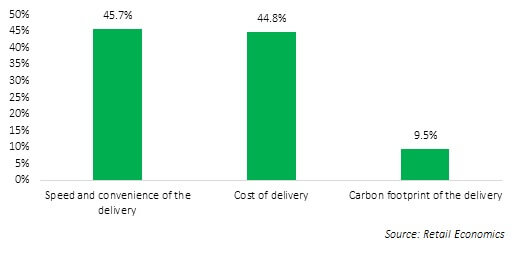
Unsurprisingly we find that there are different attitudes about the relative importance of speed, cost, and the carbon footprint of deliveries across the age groups. Among online clothing shoppers, only one in ten respondents in 2019 considered the carbon footprint of delivery to be the most important factor for fulfilment. However, it is fair to say that, particularly after the COP26 conference, the focus on the carbon cost of deliveries has sharpened.
Attitude to online clothing deliveries: what’s more important?
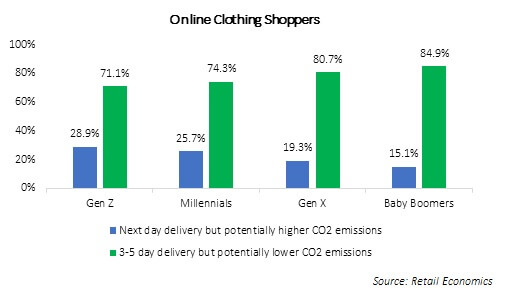
Concerns around the environment raise the issue of route optimisation and the trade-off between the fastest route versus the most carbon neutral. As can be seen from the above, the majority of respondents in each age group appear to be willing to sacrifice the speed of delivery for a reduction in carbon emissions in the delivery of their online clothing orders.
However, the speed of delivery seems to matter more to some Gen Z’s (the youngest generation) which supports the view that Gen Z tends to expect instant gratification. However, more than seven out of ten (71%) say they would still consider a longer time for delivery if carbon emissions were lower.
This could suggest that they are open to being better educated about the impact of their shopping preferences and willing to seek greater transparency of the sustainability of deliveries. Interestingly Baby Boomers, as a group appear to be the most patient, with 85% being more willing to wait longer for their deliveries. Suggesting a more pragmatic approach to reducing CO2 emissions.
Should retailers be providing more information about the carbon footprint of delivery?
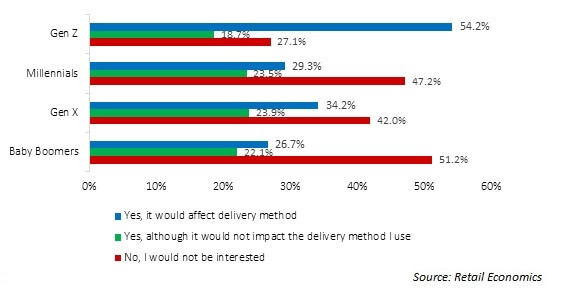
More than half (54%) of Gen Z respondents say they would potentially change their delivery preferences if retailers provided greater information on the carbon footprint associated with delivery options. As the most frequent online shoppers, Gen Z’s represent the biggest opportunity to be persuaded to change behaviour, while the BabyBoomers look like the group least open to persuasion.
In short brands and retailers targeting the younger age groups are most likely to benefit from presenting a clear low-carbon fulfillment and delivery strategy.
Does this, therefore, beg the question, are green delivery options the new checkout battleground for competing brands and retailers?
What’s the UK Government’s position?
In July 2021, the Department of Transport published its latest decarbonisation plan that sets out the Government’s commitments and the actions needed to decarbonise the entire transport system in the UK. Grant Shapps’ foreword acknowledged that: “Transport is the largest contributor to UK greenhouse gas emissions (GHG), with road transport alone accounting for almost a quarter of our total emissions in 2019. We must deliver a step-change in the breadth and scale of our ambition to reduce transport’s GHG emissions to reach net zero.”
The plan also recognises that “Zero-emission motorcycles and other powered two-wheelers are an efficient and clean form of mobility that can reduce congestion, improve urban air quality and reduce noise – we will take forward measures to remove these emissions, including consulting on a date to end the sale of new non-zero emission motorbikes, ensuring we support the development of new industrial opportunities for the UK”.
So, the regulatory message to the logistics and courier industry is abundantly clear and any delay in transitioning to low emission fleets throughout the supply chain could cost companies dearly.
And Transport for London?
TFL is also focussing strongly on reducing vehicle emissions and pollution throughout the capital. In its Sustainability Report 2021, TFL claims to be “creating one of the greenest bus fleets in the world. Our bus fleet meets the latest Euro VI emission standard across the entire city, and we have introduced more than 500 zero-emission buses at tailpipe (electric and hydrogen). Currently, one in 20 buses in London are zero-emission and this will continue to increase as we transition the entire fleet.”
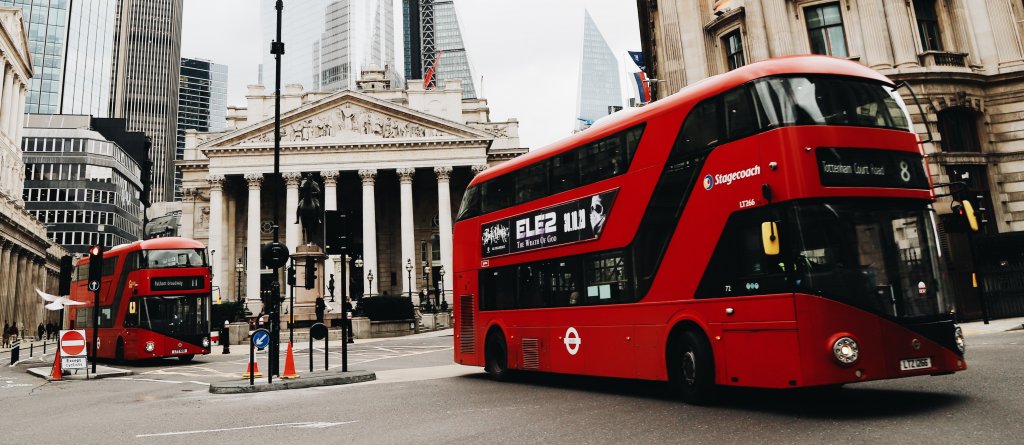
TFL plays a significant role in delivering the Mayor’s air quality programme and enabling activities on the road network. It operates the London ULEZ zone, which has cut down the number of older, polluting vehicles on London’s roads and has according to TFL, contributed to a 44 per cent reduction in roadside nitrogen dioxide within its boundaries in 2020 compared to 2017.
The plan also stated that “From 25 October 2021, the ULEZ will expand to create a single larger zone bounded by the North Circular Road (A406) and South Circular Road (A205) and cars, motorcycles, vans, other specialist vehicles and minibuses driving into and within the zone will need to meet the required emission standards or pay a daily charge.”
This has now come into effect and other cities are also planning similar approaches to the last-mile delivery challenge; Birmingham has operated a full clean-air zone charge since June 2021 Portsmouth City Council introduced a clean air zone charge as of November 2021, and Bristol’s is planned for summer of 2022. In almost all cases commercial vehicles are seen as the priority target.
City of London Corporation Last-Mile Logistic Hub
In 2020 the City of London Corporation’s Planning and Transportation Committee approved the setting up of a new Last Mile Logistic Hub in a bid to consolidate deliveries, remove pollution-spewing vans from the roads of central London and reduce carbon emissions.
Its first initiative was to transform 39 parking spaces in the London Wall Car Park into a hub for Amazon Logistics, the retailer’s logistical arm. Delivery vehicles will deliver packages to the hub and, for the final leg, couriers will take them on e-cargo bikes or on foot to the recipient’s door.
The City of London Corporation aims to deliver two additional Last Mile Logistics Hubs by 2022 and a further five by 2025. It has also set a target of reaching net-zero carbon emission by 2040 and believes that these hubs will help to realise this goal.
What are the industry bodies doing?
The Chartered Institute of Logistics and Transport (CILT)’s ‘Routes to Net Zero 2050, 2020 Year-end Summary Report’ pulls together studies, consultations, and statements of a plethora of academic, industry, government, and international bodies and sets down a series of 21 policies, proposals and recommendations that CILT will promote about transport decarbonisation.
Two of CILT’s recommendations relate to the courier industry. Recommendation ‘7’ states that: E-bikes should be supported, but e-scooters should not be permitted on footways. Recommendation ’10’ says that: “All home deliveries should be undertaken by electric vehicles by 2030.”
The message could not be clearer – the only way is electric.
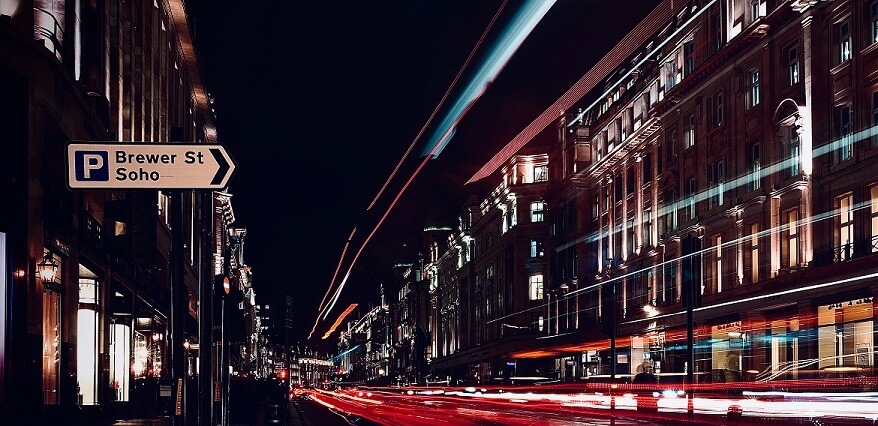
Absolutely’s low-emissions approach
At Absolutely we have been on the low-emissions case for some time now. CEO Stuart Godman recently explained: “As we mainly operate within central London, we completely understand that rising carbon emissions on our streets not only damage the health and welfare of our colleagues but also have a negative impact on our long-term clients in the fashion industry. As an ISO accredited courier, we have a duty of care for our colleagues and have to maintain our reputation for good customer service”.
Many of our fashion and retail clients have already been served by our expanding fleet of both electric and pedal-powered, zero-emissions cargo bikes for several years now delivering goods across London to both stores and direct to customers. Most recently, with the advent of the larger cargo bikes, we are now able to offer secure London sameday delivery, by electric cargo bikes, of hanging garments. In addition, we are currently extending our electric Van fleet, to cater for those bigger and more unwieldy loads.
Absolutely wins Award for zero-emission Eco-hub
In October 2021, Absolutely won the Institute of Couriers ‘Clean Air Award’ for its zero-emission Eco-hub in London WC1. The IOC acknowledged that Absolutely Couriers had been instrumental in supporting TfL’s LoCITY/Clean Air campaign, passionately supporting a net-zero vision and building London’s largest, zero-emissions electric cargo bike fleet operating out of a dedicated cargo bike hub in WC1. The bikes are fully ULEZ compliant and therefore provide our clients with fast and efficient London same day deliveries without incurring ULEZ charges.
Our aim in opening the first of our zero-emission Eco-Hubs back in January 2021 was to operate a pure, zero-emissions, final mile fleet to demonstrate our ongoing commitment to making London a cleaner and safer place to live and work. We are planning to expand the number of eco-hubs to bring more locations within the current cargo bike range, which will continue to reduce our contribution to London emissions.
As part of our ongoing green initiatives, we have has also recently partnered with Ecologi to help build a climate positive workforce and so far the feedback from clients and colleagues has been exceptional. However, we all appreciate that there is more still to do.
Decarbonisation – the main challenge for couriers?
For all London-based courier companies, and indeed for couriers in all large cities across the UK, the challenge of the last mile is clear and present. The clock is already rapidly ticking towards 2030 so our focus must be on switching to zero-emission vehicles across the entire supply chain wherever possible and seeking alternative ways of reducing our carbon footprint.
The fashion and retail sectors are highly subject to the vagaries of consumer demand, which as we all know is highly unpredictable. As we identified above, despite the current market challenges, consumer expectations are increasingly towards delivery in hours rather than days.
Ultimately, we will only solve these challenges by listening to and working with our clients, their customers, our colleagues, partner logistics operators, and authorities such as TFL and local councils.
If you are ready to work with us to help re-engineer your London last-mile delivery processes, please contact us now.

